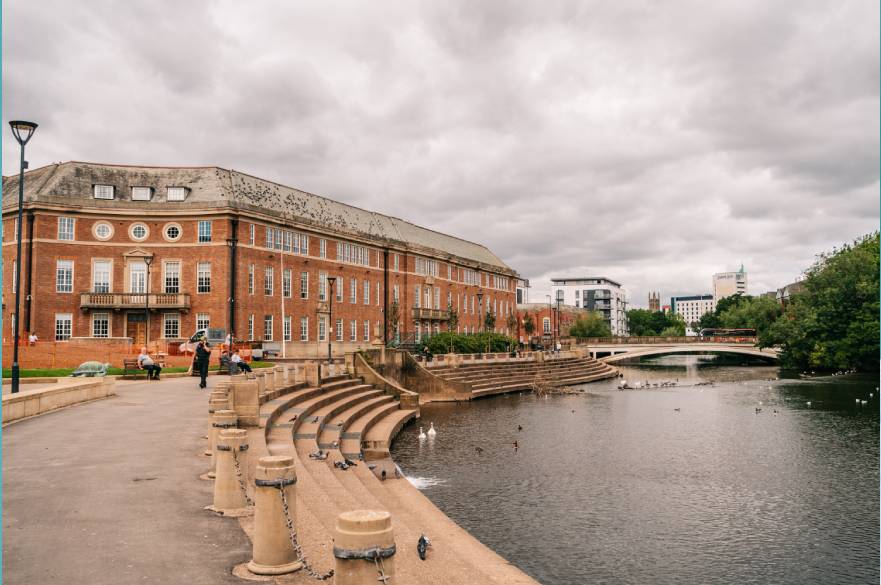Derby City Council is preparing to roll out additional community testing across the city, using rapid tests.
Access to COVID-19 testing is a key building block in helping to prevent the spread of the virus along with keeping our distance, washing our hands, wearing a face covering, self-isolating and applying a test if we have symptoms, and contact tracing for those who test positive.
There is currently good capacity for anyone with symptoms who needs a test by calling 119 and using one the city’s four testing centres. Rapid tests (also known as rapid-turnaround lateral flow tests) can be used for those without symptoms, requires a throat and nose swab and take less than an hour to give results. The tests check if you’re infectious, even if you do not have symptoms, providing an opportunity to identify asymptomatic people in the community who could unknowingly be spreading COVID-19. In a small number of pilot areas, rapid tests have been rolled out on a widespread basis, known as ‘mass testing’. There is a great deal of learning from these pilots, but we know that the greatest benefit is gained from testing those most likely to be infected.
Alongside, other forms of testing available in the city, rapid testing can provide, regular and targeted testing in selected areas and groups and will be able to provide more rapid results.
Derby City Council’s Public Health team will identify groups and COVID ‘hotspot’ areas that may benefit from increased testing in an effort to effectively identify more positive cases and ultimately reduce transmission in the area. This approach has been developed to meet local needs at this time and the Council continues to work closely with partners to learn from a regional pilot in Derbyshire.
The Council is currently planning to introduce targeted, rapid testing as soon as possible. This, alongside greater access to symptomatic testing, a citywide contact tracing partnership, support for isolation and launch of the new vaccination programme, will support the city’s recovery from COVID-19 during 2021.
Councillor Chris Poulter, Leader of Derby City Council, said:
While we would not wish Derby to be under the most severe restrictions for longer than necessary and widespread testing may impact on our tier, there a number of factors at play in the decision process. Public Health data is indeed taken into account, however, various measures are used for the Government to determine local alert levels.
That considered, our decision to undertake rapid community testing in Derby has instead been made to provide the best possible protection for citizens.
The plans have also been considered in light of the very welcome news of a COVID vaccine being rolled out across the UK, which will itself be a game-changer in our fight against the virus
Vaccinations will be carried out at the Royal Derby Hospital as well as Derby Arena, which puts us in a strong position as a city to begin recovering from the pandemic.
Dr Robyn Dewis, Director of Public Health, Derby City Council, said:
Rapid community testing gives us the capability to be extremely targeted in our approach to reducing COVID transmission. We will be able to identify groups that are experiencing higher case numbers and offer fast testing capacity even to asymptomatic individuals.
We believe this tactic, along with symptomatic testing, support to isolate and the ongoing vaccination programme across the UK, will help us regain control of the virus.
We do also want to encourage all citizens that are experiencing any or all of the main COVID symptoms to do the right thing for Derby by self-isolating and applying for a test straight away. There is plenty of capacity available at all our local testing sites, some of which are accessible for those without a car. Self-isolation and testing remain some of our best ways of keeping ourselves and others safe.
Tests are currently available to all citizens of Derby who have one or more of the main COVID symptoms: a new, continuous cough, a high temperature, or a loss / change of sense of smell or taste. Tests are bookable online or by calling 119. There are local testing sites at Morleston Street Day Centre, Austin Sunnyhill Children’s Centre, and West End Community Centre for those who do not have access to a car – all of which are open seven days a week.
